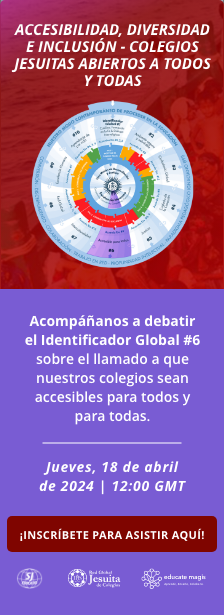Because we are educators from around the world connected through the Educatemagis.org network, the circumstances and challenges we face will be different, yet I hope my experiences as a student and a teacher and the suggestions I derive from these will be useful to teachers new to teaching online.
First off, I am a teacher in the Ateneo de Manila Junior High School in Quezon City, a major urbanized area in Luzon island of the Philippines. In the Philippines, the basic education school year ends in March or early April, so in the Ateneo JHS we were preparing for our final examinations. We had our first exam on March 9, a Monday, and then were caught by surprise by the late evening announcement of our President to suspend classes from March 10 to 14 over the Coronavirus. The suspension would later become an extended quarantine which would last till April 13. Because the extended quarantine resulted in the shutdown of schools and most offices and industries, a number of adjustments had to be made to enable work at home solutions, but for some this was, and still is, just not possible.
1) Identify online resources available to and usable by you and your students
The Philippines, according to We Are Social (2018) and HootSuite Digital (2019), has led the world in social media usage for 4 years running and, last year, had the most number of hours spent online in the world with over 75 million Filipinos aged 13 and older on social media and majority of these accessing these sites on their phones. It would seem that if any country is ready to do online learning it would be the Philippines.
Yet, this is not the case. Internet access can be slow or limited by mobile data plans. Many families do not own their own laptop or pc and many students would instead go to internet cafes to play and socialize…and do their assignments. With the extended quarantine, these internet cafes and the malls which would provide free WiFi are no longer available. While these students may have their phones and Microsoft Office is available for free on the Google Play store, another layer of difficulty is added to the teaching-learning process for students doing schoolwork on their phones. For schools, the private schools are better equipped to move to online classes, especially if they have existing Learning Management Systems set up such as Edmodo, Google Classroom, Schoology, and the like, but the public schools in the Philippines do not have such an online infrastructure in place for all schools. For the teachers, even if their school has an online infrastructure in place, they may not be comfortable designing lessons or assessments online.
The first step will be to survey your students on what resources for accessing lessons online are available to both students and teachers, which of these are provided by the school, and which ones the student and teacher can use given their personal circumstances in relation to WiFi access and devices.
2) Exercise cura personalis (personal care and consideration)
My laptop recently died and since I am a graduate school student who also has paper requirements to write, I have spent the last week trying to repair my laptop and trying to find a store open with the parts I need. Given the extended quarantine, this has been a misadventure all in itself. In addition, I am a father of three children ages 4, 8, and 11 and am busy with my wife managing the household and our own work from home arrangements, while also taking advantage of the greater than normal quality time with one other. All of these have resulted in my not being as productive as I think I should be with my graduate school output given I am at home 24/7.
Yet this is when I must exercise cura personalis both for myself and for my students. It is easy to fall into the trap of thinking that I (and my students) should be more efficient given how much “free time” we now have. However, we know that is not really the case. For the adults, we have other roles to play and other concerns. For our students, we need to find out what the situation is like for them and, for those still with classes or requirements, set guidelines and tasks that recognize the unusual times we are in now while still holding them accountable for tasks that they can do on their own. In the university level, the Ateneo Loyola Schools released a memo to the university faculty and students that provided options for completion of online work and lessons which would not be graded during the quarantine precisely because of the disparity in online access and the differing circumstances of our students. This does not mean that online classes and tasks are not being assigned. Far from it, teachers and students are trying to make the adjustment, but everyone is cognizant of how challenging times are now and is more considerate of one another. It is this spirit of generosity that should guide us as teachers in our decision-making process as to what tasks to assign and what we can expect of ourselves and of our students.
3) Jesus said, “This sickness will not end in death. No, it is for God’s glory so that God’s Son may be glorified through it.” (John 11:4)
So many have died and there is grief and immense suffering because of this disease. I worry about my friends who are doctors and nurses. I fear for my own family, especially for my elderly parents. There is no denying the pain, suffering, and fear that we are faced with and my heart goes out to those who have suffered losses. When I heard Cardinal Tagle in last Sunday’s mass mention this line in the Gospel, I understood that his point was that we must not let this disease win by killing the very best parts of ourselves. We must strive to find ways to uplift the dignity of the poor and the elderly, find ways to honor the sacrifices of our doctors, nurses, and other healthcare professionals, find ways to empower our citizens to reduce the risk of infection and lessen the burden on the hospitals, and find ways to strengthen and enliven our young people in faith, hope, and love.
I am frustrated by what I perceive as a lack of a long-term plan from our national leaders, but I have tried not to let that frustration lead to depression. With the help of my family and of my neighbors, we have spent the last two days making 1,200 face shields out of acetate sheets, foam strips and garter to donate to front-liners in hospitals. I have seen my classmates and batchmates work to fabricate protective gear and ventilator parts or donate and then deliver alcohol and food supplies to frontliners. Many of our children have been asked to craft colorful get well cards or messages of support for patients and frontliners.
While we have a curriculum to follow and lesson to teach, let us also find ways to make the activities we choose and the connections to lessons we teach be life-giving. Be creative in finding points for reflection, integration, and articulation for our students so that they may also find ways to help their community or simply their parents. Let us not let the virus win by killing our belief in the goodness of humanity and God and our hope in a better future, both of which can be achieved by a spirit of generosity.
I pray that this virus does not kill our spirit of generosity.
Inicia sesión o Hazte miembro
para crear y ver comentarios

